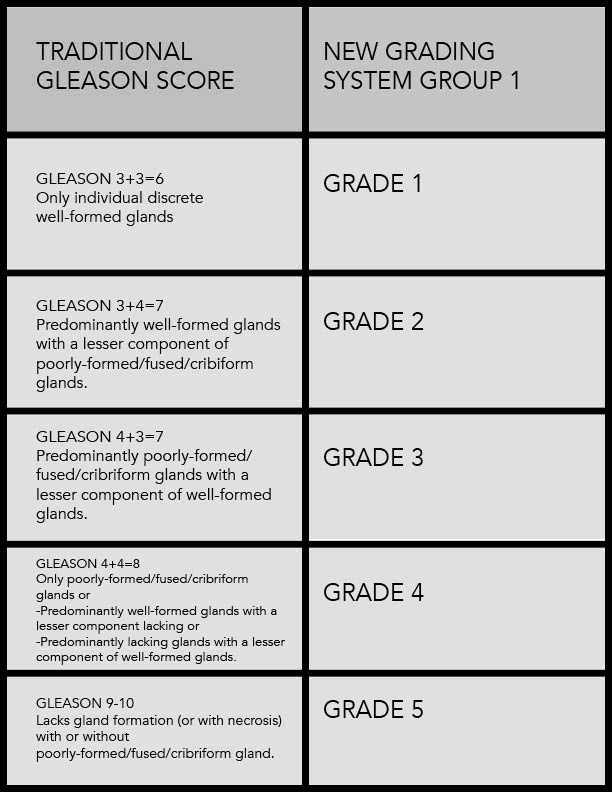Treatment Decision Process
Gleason Scoring
To estimate your prostate cancer’s clinical importance—its potential to grow and spread to other parts of the body—we use a method called the Gleason grading system. A pathologist looks at tissue samples from your biopsy under a microscope to describe how the tumor cells look compared to normal cells and to identify their distinct patterns.
- The pathologist assigns a score of 1-5 to the most predominant cell pattern and a score of 1-5 to the next most predominant cell pattern and adds these scores together. The sum of the two scores is the “grade” of your cancer. The higher the grade, the more aggressive the cancer.
- A grade of 6 or less describes cancer cells that look similar to normal cells and may be less likely to spread or may grow more slowly.
- A grade of 7 indicates intermediate risk for aggressive cancer.
- A grade of 8 or higher describes cancers that are more likely to grow and spread rapidly.
The Gleason grade is helpful in selecting the most appropriate treatment option.

Genomics on Biopsy
We use Oncotype Dx® and Decipher® to assess prostate biopsy tissue and provide important information about the tumor, such as aggressiveness of cancer, which helps to identify patients who can safely choose active surveillance.
Decipher® and Precise MD® can also be performed after prostatectomy to give more detailed information about the clinical importance of the tumor post-operatively.
Single-cell Genomics
In the laboratory, our researchers are working to unravel the genetic factors linked to prostate cancer. Two studies underway —single-cell genomics profiling and racial disparity profiling—are expected to advance the goal of truly personalized prostate care.
Our new single-cell profiling approach is designed to refine risk stratification for prostate cancer across all demographics profiling.
Nomogram-derived Risk Calculators
Our team has worked on creating nomogram-driven risk calculators that help predicting extra-capsular extension or seminal vesical invasion of cancer or lymph node metastases.

 International Patients
International Patients